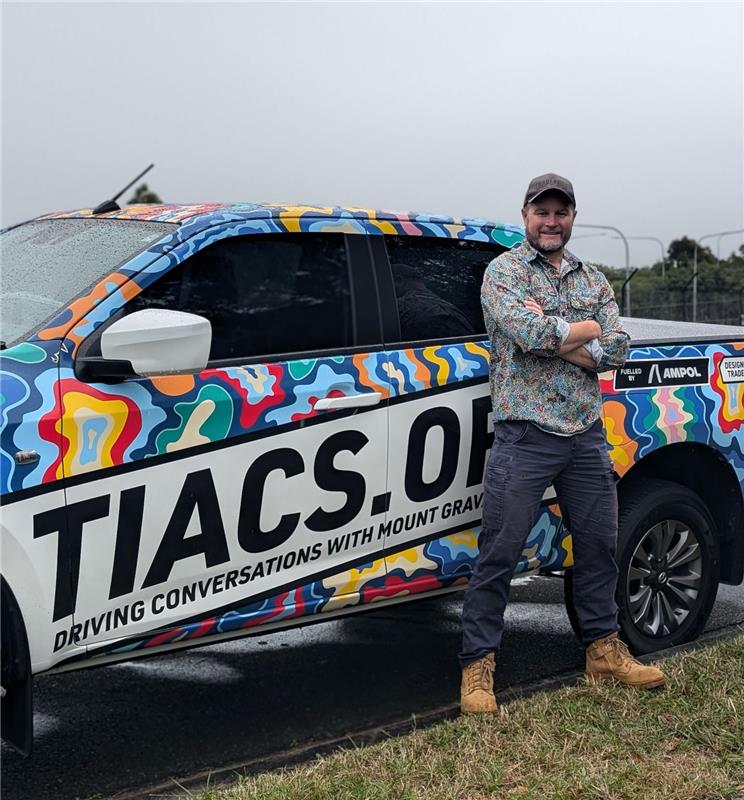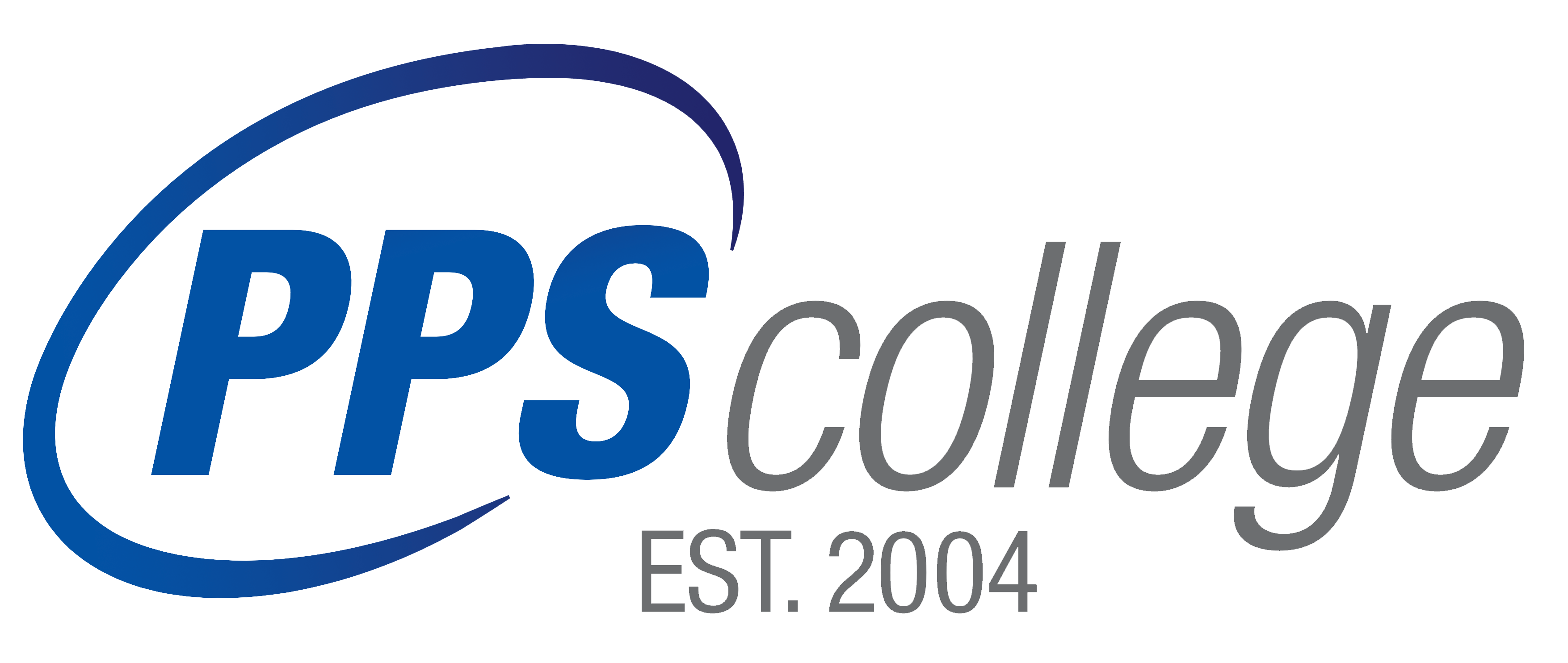In this exclusive Q&A, we sit down with Jason Banks, a leader in mental health advocacy, to discuss how This Is A Conversation Starter or TIACS is transforming mental health support for tradies, truckies, and farmers across Australia.
With a personal connection to PTSD and a background in retail leadership, Jason opens up about why he joined TIACS and the critical role the organisation plays in providing free, accessible counselling to blue-collar workers. From breaking down barriers to early intervention, Jason sheds light on the challenges and successes of supporting mental health in traditionally tough industries.
Read on to discover how TIACS is making a real impact and changing lives.
Can you tell us a bit about your background and how you got involved with TIACS?
Yeah sure. I have over 30 years of retail leadership experience, working for Coles and Bunnings in senior leadership roles, including being the state manager for Queensland. I also served as the National Safety and Wellness Manager at Bunnings for Australia and New Zealand. In 2019, I resigned and took some time off. I set up a personal training studio, focusing on working with people with disabilities. However, something was missing, and I wanted to have a broader impact. That’s when I came across TIACS. I was drawn to it because it aligned with my purpose and personal experiences with PTSD, which I saw firsthand with my father, a Vietnam veteran. I wanted to be part of something that makes a real difference in mental health.
Q: What motivated you to be part of an organisation focused on mental health awareness?
A For me, it’s deeply personal. I grew up seeing my father struggle with PTSD from his time in Vietnam, and I always felt that there wasn’t enough support for people like him. TIACS gave me an opportunity to give back in a meaningful way. Also, after working in leadership roles, I saw how mental health challenges are widespread, especially in industries like retail. This is my way of contributing to creating change.
For those who might not be familiar, could you explain what TIACS is and the mission behind it?
TIACS is a not-for-profit organisation that provides professional mental health support to tradies, truckies, and farmers across Australia, including their loved ones. We focus on making mental health support accessible by removing financial, physical, and social barriers. Our vision is to be the go-to mental health support service that people recommend to their mates.
What specific services does TIACS provide, and how do they differ from other mental health support organisations?
We provide free mental health counselling through text and call services, focusing on early intervention. Unlike many services that address crisis situations, TIACS tries to prevent people from reaching that crisis point. We offer up to eight free sessions, with no GP referral needed, and clients have the same counsellor throughout their journey. We operate outside normal business hours to make it easier for people in these industries to access help.
What are the most common issues that people seek help for through TIACS?
Relationships are the number one issue, particularly for men. Financial stress and workplace challenges also come up frequently. A lot of people deal with situational stress that can accumulate and create bigger mental health problems if left unaddressed.
How has the organization evolved since its inception?
When TIACS started, it was mostly focused on tradies, but over time, we’ve expanded to include truck drivers and farmers. We recognised that these other blue-collar industries faced similar challenges but didn’t have as much access to mental health support.
What are some of the biggest challenges TIACS has faced in promoting mental health conversations, especially in industries like construction?
One of the biggest challenges is changing the help-seeking behavior. Many people in these industries, particularly men, don’t feel comfortable reaching out until they’re in a crisis. We need to create an environment where it’s okay to say, ‘I’m not feeling great’ and ask for help earlier.
What are the most common barriers people face in seeking help for mental health issues, and how does TIACS address these?
One of the major barriers is people’s own internal dialogue. They think, ‘I’m not bad enough to need help’ or ‘I don’t want to take a spot from someone who needs it more.’ We also focus on removing the complexity of accessing services, making it simple to connect with us through text or call.

In your opinion, how has the conversation around mental health changed in recent years, particularly in Australia?
Mental health used to be marketed as a dark, isolated issue, but now there’s a shift. Campaigns like ‘R U OK?’ have helped normalise the conversation, but we still need more action. Mental health is slowly becoming seen as a form of mental fitness, similar to physical fitness, but there’s still work to be done in making sure people take action when they need help.
What role do you think workplaces should play in supporting the mental health of their employees?
Employers need to take a proactive approach and create a supportive culture. It’s not just about offering an Employee Assistance Program (EAP); it’s about understanding individual needs and making sure there’s a solid well-being plan in place. A lot of organisations just offer a gym discount and think they’ve done enough, but it needs to go deeper than that.
What are your goals for the future of TIACS? Where do you see the organization in the next 5-10 years?
For us, it’s about making sure that we set up a long-term sustainable not-for-profit organisation. Our goal is to be one of the top five mental health support services in the country within the next five years. What we’re doing is unique, and no one else is doing it the way we are. In five years, TIACS will be bigger than Trademutt.
We’re committed to sticking to our lane, staying true to our story and DNA, and avoiding outside influences that could derail us. Importantly, we don’t seek government funding to maintain autonomy over our operations and ensure longevity.
The TRADEMUTT shirts, Jason, tell us more about the story there?
Trademutt was started with 1,500 shirts back in 2018, with no idea of how big it would become. Now, it’s a movement. The shirts have grown into something more—a colorful, light-hearted way to start conversations about mental health. They break down barriers, especially in male-dominated industries, by turning something dark into something that invites conversation. Wearing the shirt is a statement, and people know that the wearer is open to talking about mental health.
Recently we’ve seen a MACK Semi Wrapped for TIACS… tell us more about this and what other projects like this are out there that we can look for?
The MACK Semi Wrapped for TIACS is just one of the ways we’re getting the word out. We’ve been collaborating with other companies to promote mental health through creative campaigns. These partnerships help us spread the message far and wide, and we’re looking forward to similar projects with more companies in the future. The goal is always to start conversations and create visibility in a way that resonates with our audience.

Are there any upcoming projects or initiatives at TIACS that you’re particularly excited about?
Yes, we’re excited about new branding efforts and shifting the narrative away from traditional ‘mental health counseling.’ We’re now branding TIACS as ‘the head noise specialists,’ which resonates more with blue-collar workers like truckies, tradies, and farmers. This approach aims to make our services more relatable and easier for people to access. Additionally, we’re seeing growth in sectors like agriculture and transport, which haven’t had adequate mental health support, and we’re aiming to continue expanding in these areas.
What does your day-to-day look like as one of the faces behind spreading the TIACS message, Jason?
My day usually involves spreading awareness of TIACS and our mission, which is to remove barriers to mental health support for blue-collar workers. I handle meetings, outreach, and ensure our service delivery runs smoothly. We’re still a startup, so my day can range from high-level strategy to hands-on activities, like working in the warehouse or attending events. My co-CEO focuses on internal operations, which allows us to balance responsibilities.
How do you manage your own mental health, especially while working in a field that deals so closely with others’ struggles?
Having a solid self-care routine and support system is essential. Every day, I start with a 25-minute sauna and a 3-minute ice bath, followed by physical training five to six days a week. I’m also fortunate to have a co-CEO to bounce ideas off, which helps reduce stress. When things get overwhelming, I know to take a break and do something different, like helping out at the Trademutt warehouse, which acts as a mental ‘circuit breaker’ for me.
What advice would you give to someone who wants to start a conversation about mental health but doesn’t know where to begin?
The first conversation you need to have is with yourself. Ask yourself how you’re feeling and what your emotions are telling you. From there, opening up to others becomes easier. It’s important to share your story because everyone has something they’re dealing with, and by sharing, you give others the confidence to come forward as well.
How do you see the mental health landscape evolving, and what role do you envision TIACS playing in that future?
I think the mental health landscape is starting to shift from being a topic people shy away from to something more openly discussed. However, there’s still a long way to go. TIACS will play a crucial role in making mental health support accessible to more people, particularly in industries that have traditionally been slower to embrace these conversations. We want to be the go-to service that people trust and recommend to their mates.
If you could change one thing about how society views mental health, what would it be?
I’d change the stigma around asking for help. People often think they have to wait until they hit rock bottom before reaching out, but mental health support should be seen like going to the gym – something you do regularly to stay well, not just in a crisis.
To learn more about how TIACS is transforming mental health support for tradies, visit tiacs.org or follow their journey on social media. Together, we can break down the barriers to mental health care and ensure more tradies get the help they need.








